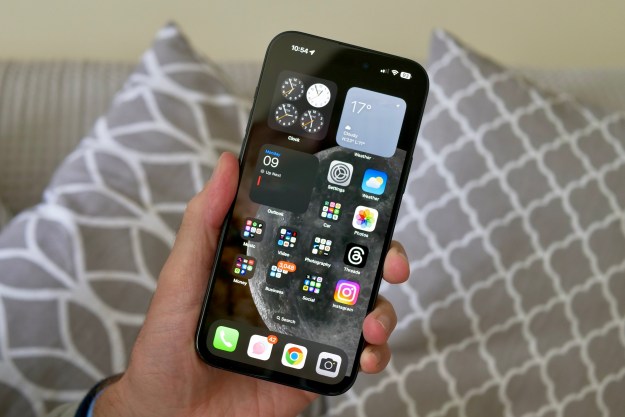
Magistrate Judge Sheri Pym of U.S. District Court, Los Angeles, told Apple to disable the iPhone’s auto-erase function that deletes a handset’s data after 10 failed passcode attempts, thereby allowing investigators multiple attempts to break the code via electronic means and gain access to the phone’s data.
However, the Cupertino company may tell the court it’s unable to comply with the request as the nature of its encryption technology makes it impossible to do so. Such a response was used by Apple in a case last October when it told a New York judge it couldn’t unlock an iOS device running iOS 8 or higher. The work phone of Syed Rizwan Farook, the San Bernadino shooter whose handset the FBI is trying to access, runs iOS 9. Apple introduced the tougher system in 2014 with the launch of iOS 8 following Edward Snowden’s government surveillance revelations.
Judge Pym’s court order marks the latest chapter in the ongoing battle between tech firms and policy makers over privacy and security in the digital world. Apple chief Tim Cook has stated on many occasions his support for unbreakable encryption for users. The CEO vehemently opposes granting investigators access to private data held on Apple’s mobile devices, an act the company says would damage customer trust.
According to the Associated Press, which first reported Judge Pym’s decision, investigators are hoping the phone’s data will reveal information about who Farook and his wife communicated with and places they visited in lead up to the shooting. The pair were apparently careful to physically destroy two other personal handsets, preventing the FBI from extracting any information from them.
Speaking to members of Congress last week, FBI director James Comey touched on the case, saying his investigators had so far been unable to gain access to a phone connected with the San Bernardino shooting.
“It is a big problem for law enforcement armed with a search warrant when you find a device that can’t be opened even when a judge says there’s probable cause to open it,” the FBI chief said, adding, “It affects our counterterrorism work….we still have one of those killers’ phones that we have not been able to open, and it’s been over two months and we’re still working on it.”
Farook and his wife, Tashfeen Malik, gunned down 14 people on December 2 at an event for Farook’s co-workers. The pair later died in a shootout with police. The FBI believes their attack was at least partly inspired by ISIS, as Malik’s Facebook page showed a message pledging allegiance to the group.
As for Apple, it has five days to inform the LA court if it has an issue with its ruling.
[UPDATE:] Late Tuesday, Tim Cook offered a robust response to the ruling in an open letter to Apple customers.
He wrote that while Apple has worked hard with the FBI to help find out more about “this horrible crime,” the security service has now asked the company “for something we simply do not have, and something we consider too dangerous to create. They have asked us to build a backdoor to the iPhone.”
Cook said the FBI wants Apple “to make a new version of the iPhone operating system” that would circumvent important security features to give it access to Farook’s phone.
He even goes so far as to describe the implications of the government’s demands as “chilling.”
The CEO notes, “In the wrong hands, this software – which does not exist today — would have the potential to unlock any iPhone in someone’s physical possession,” ending with the message, “We are challenging the FBI’s demands with the deepest respect for American democracy and a love of our country. We believe it would be in the best interest of everyone to step back and consider the implications.”
Cook’s letter can be found on Apple’s website here.
Editors' Recommendations
- iPhone SE 4: news, rumored price, release date, and more
- There’s a big problem with the iPhone’s Photos app
- This one thing could make iOS 18 the best iPhone update in years
- iPhone 16: news, rumored price, release date, and more
- This is our best look yet at the iPhone 16’s big design changes


